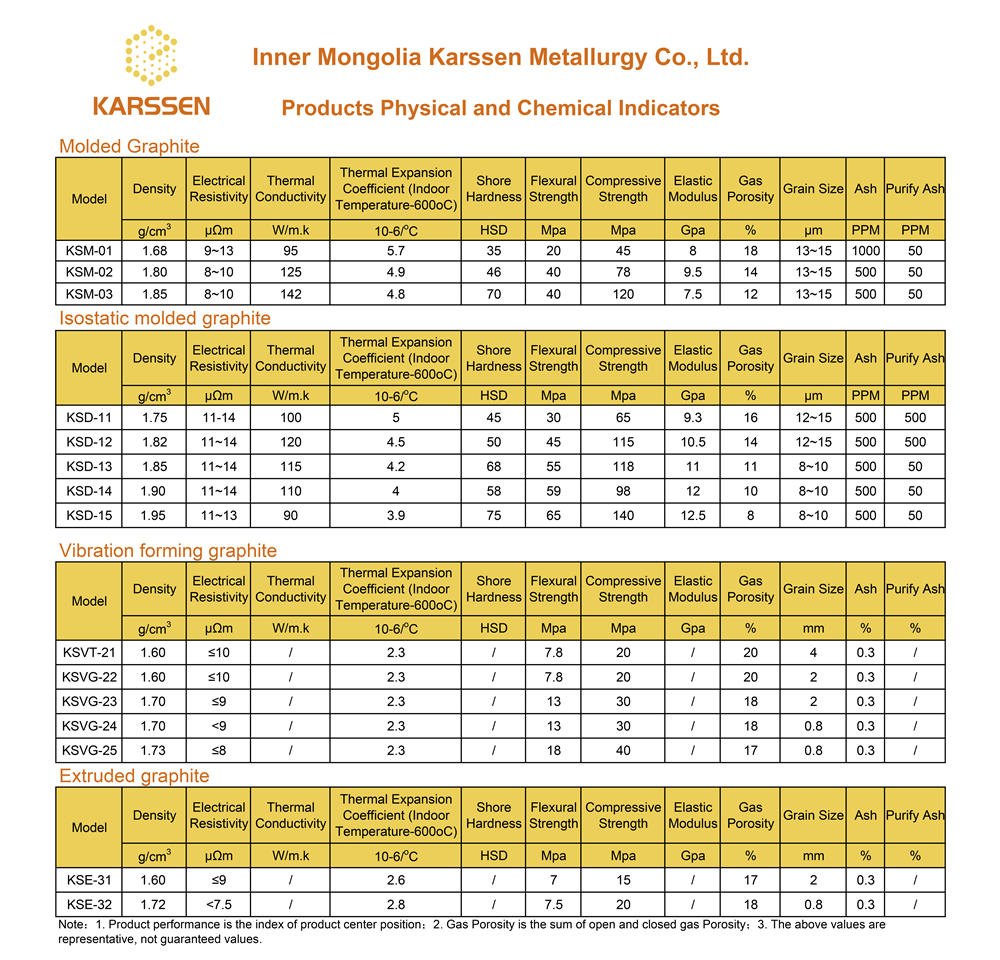Email: info@karssenmetal.com Tel: +86 18147353336
Graphite block is a graphite product that is commonly used in various industrial applications. They are made of high-purity graphite, which is characterized by high thermal conductivity, low electrical resistance, and resistance to oxidation and corrosion. Properties of Graphite Blocks Graphite blocks are characterized by high thermal conductivity, low electrical resistance, and high resistance to oxidation and corrosion. These properties make them ideal for high temperature applications suc

Graphite block is a graphite product that is commonly used in various industrial applications. They are made of high-purity graphite, which is characterized by high thermal conductivity, low electrical resistance, and resistance to oxidation and corrosion.
Properties of Graphite Blocks
Graphite blocks are characterized by high thermal conductivity, low electrical resistance, and high resistance to oxidation and corrosion. These properties make them ideal for high temperature applications such as the production of steel, aluminum and other non-ferrous metals.
The high thermal conductivity of graphite blocks allows them to withstand high temperatures and distribute heat evenly. This characteristic also makes them ideal for use in the construction of high-temperature furnaces and other equipment requiring efficient heat transfer.
The low electrical resistance of graphite blocks makes them ideal for applications requiring high currents. This characteristic also makes them ideal for use in electrolytic cells for the production of aluminum and other metals.
The high resistance to oxidation and corrosion of graphite blocks ensures their long service life in harsh environments. This property also ensures that they do not contaminate the materials they come into contact with, making them ideal for the production of high-purity metals and other materials.
Graphite block manufacturing process
Graphite blocks are made from a mixture of high-quality petroleum coke, needle coke and coal tar pitch. The raw material is crushed and ground into a fine powder, which is then mixed with coal tar pitch and formed into blocks using a molding process.
The blocks are then baked at high temperatures to carbonize the coal tar pitch and convert the raw material into graphite. The resulting block of graphite is then processed to the desired size and treated with a special coating to improve its electrical conductivity and resistance to oxidation.
Application of graphite block
Graphite blocks have a wide range of industrial applications, including the production of steel, aluminum and other non-ferrous metals. They are used in the construction of high temperature furnaces and other equipment requiring efficient heat transfer. They are also used in the production of electrolytic cells for the production of aluminum and other metals.
Graphite lumps are also used to produce high-purity metals and other materials. They are used as crucibles and other vessels for melting and casting metals, and in the production of electronic components such as semiconductors.
in conclusion
Graphite block is a versatile and important graphite product used in various industrial applications. They are characterized by high thermal conductivity, low electrical resistance and high resistance to oxidation and corrosion. The manufacturing process of graphite blocks involves the use of high-quality raw materials, such as petroleum coke and needle coke, which are converted into graphite through a baking process. Graphite blocks have a wide range of industrial applications, including the production of steel, aluminum and other non-ferrous metals, as well as the production of high-purity metals and other materials.
In the smelting process of non-ferrous metals su
Isostatic graphite blocks are an important graph
Graphite rotor belongs to graphite material, whi
Contact: Bateer
Phone: +86 18147353336
Tel: +86 18147353336
Email: info@karssenmetal.com
Add: Room D204-2203, Innovation Building, Baotou Light Industry Vocational Technical College, 19 Jianhua Road, Qingshan District, Baotou City, Inner Mongolia, China.